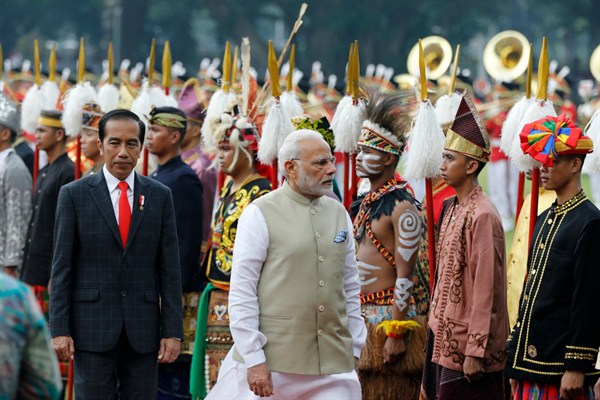Indian Prime Minister Narendra Modi used a three-country tour of Southeast Asia in the late May and early June to tout his “Act East” policy. In Indonesia, he signed a deal to develop the country’s Sabang port at the mouth of the strategic Malacca Strait, while pledging to boost security and maritime cooperation. And in an address to the Shangri-La Dialogue, a forum on Asian security issues in Singapore, he pledged India’s commitment to free navigation and a rules-based order for maritime security in Asia. In an email interview, Anubhav Gupta, the assistant director of the Asia Society Policy Institute in New York, discusses the goals and achievements of Modi’s Act East policy, and the opportunities and challenges it faces. The views expressed here are his own.
World Politics Review: What factors gave rise to Prime Minister Narendra Modi’s “Act East” policy agenda, and what were its diplomatic and economic goals?
Anubhav Gupta: When Indian Prime Minister Narendra Modi first spoke of an “Act East” policy at the East Asia Summit in Myanmar in 2014, he wasn’t so much announcing a new policy as much as turbo-charging an old one. Since the 1990s, India has aimed to strengthen its relations with Southeast and East Asia through what was called the “Look East” policy. Modi has accelerated these efforts to better connect India with the East through physical infrastructure projects, trade and investment agreements, and regional institutions.

